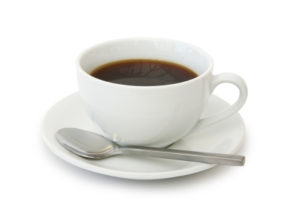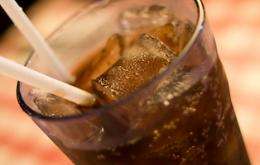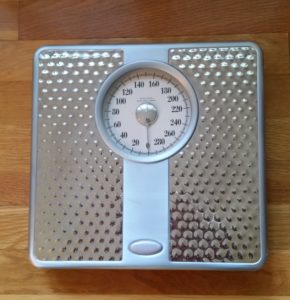 This study showed an association of eating lots of flavonoid rich foods (strawberries, blueberries, cherries, blackberries, red wine, apples, pears, and citrus products) and lower rates of erectile dysfunction. A higher intake of several flavonoids also reduces diabetes and cardiovascular disease risk. Keep in mind that erectile dysfunction is thought to be of vascular etiology (the cause) and so shares risk factors (such as hypertension, obesity, and smoking) with cardiovascular disease. Studies have shown that lifestyle factors such as plenty of exercise, being of normal weight, and a Mediterranean style diet rich in whole grains, fruit, vegetables, nuts, legumes, and olive oil was associated with both lower rates of erectile dysfunction and an improvement in erectile function in men. So don't focus just on the flavonoids, but on the whole lifestyle package. From Science Daily:
This study showed an association of eating lots of flavonoid rich foods (strawberries, blueberries, cherries, blackberries, red wine, apples, pears, and citrus products) and lower rates of erectile dysfunction. A higher intake of several flavonoids also reduces diabetes and cardiovascular disease risk. Keep in mind that erectile dysfunction is thought to be of vascular etiology (the cause) and so shares risk factors (such as hypertension, obesity, and smoking) with cardiovascular disease. Studies have shown that lifestyle factors such as plenty of exercise, being of normal weight, and a Mediterranean style diet rich in whole grains, fruit, vegetables, nuts, legumes, and olive oil was associated with both lower rates of erectile dysfunction and an improvement in erectile function in men. So don't focus just on the flavonoids, but on the whole lifestyle package. From Science Daily:
Blueberries, citrus fruits, red wine associated with reduced erectile dysfunction
Flavonoid-rich foods are associated with a reduced risk of erectile dysfunction -- according to a new collaborative study from the University of East Anglia (UEA) and Harvard University. Research published in The American Journal of Clinical Nutrition reveals that eating foods rich in certain flavonoids is associated with a reduced risk of erectile dysfunction in men, with the greatest benefit in those under 70. Of all the different flavonoids, Anthocyanins (found in blueberries, cherries, blackberries, radishes and blackcurrant), flavanones and flavones (found in citrus fruits) were found to offer the greatest benefits in preventing the condition.
It is already known that increased exercise can improve erectile function, but this research shows that eating a flavonoid-rich diet is as good for erectile function as briskly walking for up to five hours a week. The study also showed that a higher total fruit intake was associated with a 14 per cent reduction in the risk of erectile dysfunction. And that a combination of consuming flavonoid-rich foods with exercise can reduce the risk by 21 per cent.
More than 50,000 middle aged men were included in this large population based study. They were asked about their ability to have and maintain an erection sufficient for intercourse -- dating back to 1986. Data on dietary intake was also collected every four years.....More than one third of the men surveyed reported suffering new onset erectile dysfunction. But those who consumed a diet rich in anthocyanins, flavones and flavanones were less likely to suffer the condition.
Prof Cassidy said: "The top sources of anthocyanins, flavones and flavanones consumed in the US are strawberries, blueberries, red wine, apples, pears, and citrus products.""We also found that the benefits were strongest among younger men," she added. The team also looked at other lifestyle factors and found that men who consumed a high intake of anthocyanins and flavanones and who were also physically active had the lowest risk of erectile dysfunction.

 A University of Georgia review study of the research literature shows that drinking coffee (instead of a caffeine supplement) improves athletic endurance performance. Also, that caffeine from coffee has
A University of Georgia review study of the research literature shows that drinking coffee (instead of a caffeine supplement) improves athletic endurance performance. Also, that caffeine from coffee has  Data from 2 huge studies was analyzed and found that vigorous exercise and other healthy habits seems to cut the chance of developing aggressive and lethal prostate cancer up to 68 percent in men over 60. The beneficial lifestyle habits are: weekly vigorous exercise or activity to the point of sweating, at least 7 servings of tomatoes a week, at least one serving of fatty fish per week, reduced intake of processed meat, and being a long-term non-smoker.
Data from 2 huge studies was analyzed and found that vigorous exercise and other healthy habits seems to cut the chance of developing aggressive and lethal prostate cancer up to 68 percent in men over 60. The beneficial lifestyle habits are: weekly vigorous exercise or activity to the point of sweating, at least 7 servings of tomatoes a week, at least one serving of fatty fish per week, reduced intake of processed meat, and being a long-term non-smoker. Beware of big soda companies bearing gifts to scientists and their misleading messages to consumers. This time it is Coca-Cola that is trying to influence the research by funding scientists who shift blame for obesity to lack of exercise.There is a large body of evidence finding that what you eat is very important for health and weight control, and this does not mean a diet filled with highly processed foods, including soda.
Beware of big soda companies bearing gifts to scientists and their misleading messages to consumers. This time it is Coca-Cola that is trying to influence the research by funding scientists who shift blame for obesity to lack of exercise.There is a large body of evidence finding that what you eat is very important for health and weight control, and this does not mean a diet filled with highly processed foods, including soda. The study results of 218 overweight, postmenopausal women who had insufficient levels of vitamin D (like most people) at the beginning of the study found that weight loss (including exercise), in combination with vitamin D supplementation, had a greater effect on reducing chronic inflammation than weight loss alone.
The study results of 218 overweight, postmenopausal women who had insufficient levels of vitamin D (like most people) at the beginning of the study found that weight loss (including exercise), in combination with vitamin D supplementation, had a greater effect on reducing chronic inflammation than weight loss alone.